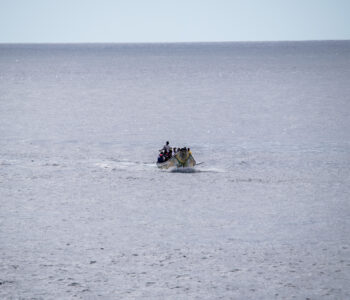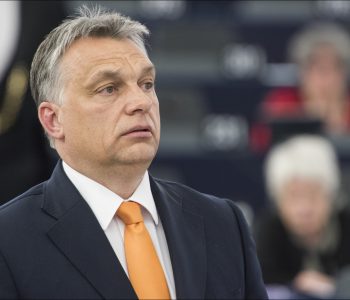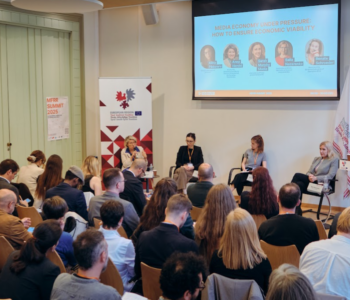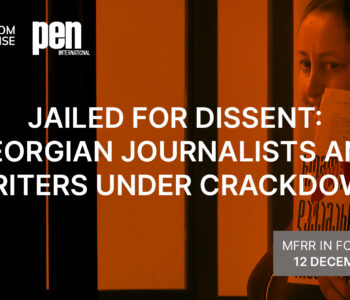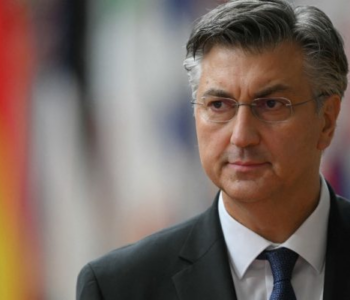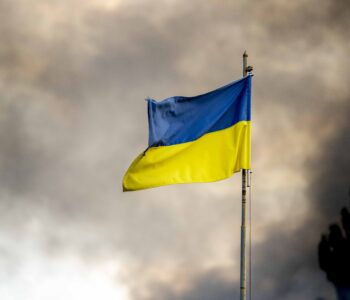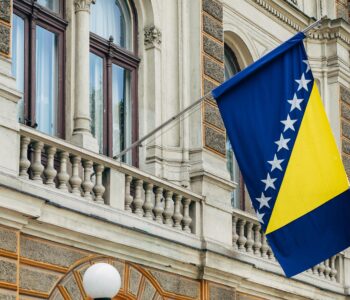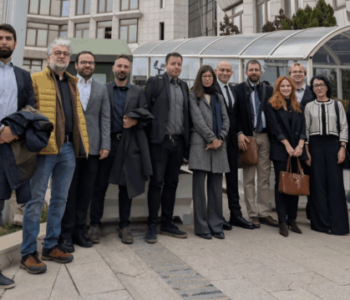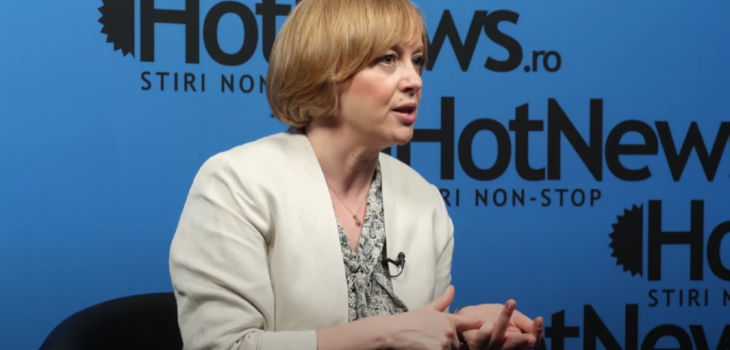
Media freedom groups concerned by delay in investigation into leak of Emilia Șercan’s stolen photos
MFRR consortium joined a collection of media freedom and freedom of expression groups in writing to Nicolae Ciucă, Prime Minister of Romania, Minister of Internal Affairs of Romania, Lucian Bode, General Prosecutor of Romania, Gabriela Scutea, General Prosecutor attached to the Bucharest Court of Appeal, Ioan Viorel Cerbu, Romanian Ombudsman, and Renate Weber, General Inspector of the Romanian Police, Quaestor of police Benone-Marian Matei.
The open letter, which follows up on a previous letter sent by the group on 13 April 2022, expresses concern at delays to the investigation into the publication of Romanian journalist Emilia Șercan’s stolen photos and the alleged leak of key elements of the investigation into this offense.
Open letter, sent electronically
28 June 2022
Dear Prime Minister of Romania, Nicolae Ciucă,
Dear Minister of Internal Affairs of Romania, Lucian Bode,
Dear General Prosecutor of Romania, Gabriela Scutea,
Dear General Prosecutor attached to the Bucharest Court of Appeal, Ioan Viorel Cerbu
Dear Romanian Ombudsman, Renate Weber,
Dear General Inspector of the Romanian Police, Quaestor of police Benone-Marian Matei
The undersigned organizations write to share their deep concerns about the delay in the investigations into the publication of Romanian journalist Emilia Șercan’s stolen photos and the alleged leak of key elements of the investigation into this offense.
The compelling need for independent investigations has been pointed out in an open letter that our organizations sent to the Romanian authorities in April 2022.
Although the principle of confidentiality of investigation applies, the law enforcement authorities seem to have failed – according to available information – to make significant progress four months after Emilia Șercan became the target of harassment and a smear campaign through the publication of her private pictures and the alleged leak of key elements of the criminal investigation into the matter amplifying the exposure of her private pictures. .
Moreover, neither the response of the Ministry of Interior to the above-mentioned open letter, nor the state reply to the alert published on the Council of Europe’s platform to promote the protection of journalism and safety of journalists addressed our organizations’ legitimate concerns about the progress of the investigation into the leak.
Hence, our organizations find that the authorities are neither designating the investigation a priority, nor devoting sufficient resources to it.
Guaranteeing a swift and independent investigation appears all the more necessary and urgent in the light of the risk of alteration of evidence and of the inaccessibility of the evidence caused by the delay. This could significantly complicate the proper conduct of the investigation.
Furthermore, the information newly added to the file indicates possible involvement of the police in the alleged leak from the criminal investigation into the offense, as a screenshot that Emilia Șercan had provided to the police appeared in the media along with her private pictures. It seems that before the leak, solely the police – in addition to the journalist herself – had access to the screenshot.
This last hypothesis is supported by a recent independent expert report concluding that any surveillance of the plaintiff’s devices is unlikely.
It is all the more crucial to prosecute these offenses given that they specifically target a journalist who has been threatened for her investigations into the practice of plagiarism by heads of the highest state institutions, including military educational institutions.
It is of utmost importance that the probe into both the threats that targeted Emilia Șercan and into the alleged leak of her stolen pictures from the criminal investigation be conducted in total independence and reach a successful conclusion as soon as possible.
As stated by Vice-President of the European Commission Vera Jourova in her reply to the open letterof Members of the European Parliament on Emilia Șercan’s case, “the Commission calls on Member States to investigate and prosecute all criminal acts committed against journalists, whether online or offline, in an impartial, independent, effective, transparent and timely manner (…) and (to) make full use of existing national and European legislation, to ensure that fundamental rights are protected and justice is swiftly delivered in particular cases and prevent the emergence of a ‘culture ’ of impunity regarding attacks against journalists”.
Indeed, the authorities swift and transparent action in Emilia Șercan’s case is in the interest of improving press freedom in Romania, which recently has declined due to an increasing number of threats and resulted in RSF ranking the country 56th in its World Press Freedom Index.
Thank you for considering our concerns.
Transmis electronic
Paris, 28 iunie 2022
Subiect: Publicarea pozelor furate ale Emiliei Șercan și presupusa scurgere din ancheta penală
Stimate premier al României, Nicolae Ciucă,
Stimate ministru al Afacerilor Interne al României, Lucian Bode,
Stimate procuror general al României, Gabriela Scutea,
Stimate procuror general de pe lângă Curtea de Apel București, Ioan Viorel Cerbu
Stimate Avocat al Poporului, Renate Weber,
Stimate Inspector General al Poliției Române, Chestor de poliție Benone-Marian Matei
Organizațiile semnatare vă scriu pentru a-și împărtăși îngrijorarea profundă cu privire la întârzierea investigațiilor privind publicarea fotografiilor furate ale jurnalistei românce Emilia Șercan și presupusa scurgere a unor elemente cheie ale anchetei în această infracțiune.
Necesitatea imperioasă a unor investigații independente a fost subliniată într-o scrisoare deschisă pe care organizațiile noastre au trimis-o autorităților române în aprilie 2022.
Deși se aplică principiul confidențialității anchetei, autoritățile de aplicare a legii par să fi eșuat – conform informațiilor disponibile – în a face progrese semnificative la patru luni după ce Emilia Șercan a devenit ținta hărțuirii și a unei campanii de defăimare prin publicarea fotografiilor sale private și prin presupusa scurgere de elemente cheie ale anchetei penale, amplificând expunerea pozelor sale private.
Mai mult, nici răspunsul Ministerului Afacerilor Interne la scrisoarea deschisă menționată mai sus, nici răspunsul statului la alerta publicată pe platforma Consiliului Europei pentru promovarea protecției jurnalismului și a siguranței jurnaliştilor, nu au abordat preocupările legitime ale organizaţiilor noastre cu privire la progresul anchetei privind scurgerea.
Prin urmare, organizațiile noastre constată că autoritățile nu acordă acestei investigații un statut prioritar și nici nu îi alocă resurse suficiente.
Garantarea unei investigații rapide și independente pare cu atât mai necesară și mai urgentă în lumina riscului de alterare a probelor și a inaccesibilității probelor, cauzate de întârziere. Acest lucru ar putea complica semnificativ desfășurarea corectă a investigației.
Mai mult, informațiile nou adăugate la dosar indică o posibilă implicare a poliției în presupusa scurgere din investigația penală asupra infracțiunii, întrucât în mass-media a apărut o captură de ecran pe care Emilia Șercan o furnizase polițiștilor, alături de pozele sale private. Se pare că înainte de scurgere, doar poliția – pe lângă jurnalista însăși – a avut acces la această captură de ecran.
Această ultimă ipoteză este susținută de un recent raport de expertiză independentă care concluzionează că orice supraveghere a dispozitivelor reclamantei Emilia Șercan este puțin probabilă.
Este cu atât mai important să investigăm aceste infracțiuni cu cât vizează în mod specific o jurnalistă care a fost amenințată pentru anchetele ei privind practicarea plagiatului de către șefi ai celor mai înalte instituții ale statului, inclusiv instituții militare de învățământ.
Este de maximă importanță ca ancheta atât cu privire la amenințările care au vizat-o pe Emilia Șercan, cât și cu privire la presupusa scurgere, a pozelor ei furate, din cadrul urmăririi penale, să se desfășoare în deplină independență și să ajungă la o rezolvare cu succes cât mai curând posibil.
După cum a afirmat vicepreședinta Comisiei Europene, Vera Jourova, în răspunsul său la scrisoarea deschisă a deputaților din Parlamentul European cu privire la cazul Emilia Șercan, „Comisia solicită statelor membre să investigheze și să urmărească penal toate faptele penale comise împotriva jurnaliştilor, fie online, sau offline, într-o manieră imparțială, independentă, eficientă, transparentă și în timp util (…) și (să) utilizeze pe deplin legislația națională și europeană existentă, pentru a se asigura că drepturile fundamentale sunt protejate și că actul de justiție este îndeplinit rapid în cazuri individuale și pentru a preveni apariția unei <<culturi>> a impunității în ceea ce privește atacurile împotriva jurnaliștilor”.
Într-adevăr, acțiunea rapidă și transparentă a autorităților în cazul Emiliei Șercan este în interesul îmbunătățirii stării libertății presei în România, care recent a scăzut ca urmare a unui număr tot mai mare de amenințăr, și a dus la clasarea de către RSF a țării pe locul 56 în Indexul mondial al libertății presei.
Vă mulțumim că luați în considerare preocupările noastre.
This statement was coordinated by the Media Freedom Rapid Response (MFRR), a Europe-wide mechanism which tracks, monitors and responds to violations of press and media freedom in EU Member States, Candidate Countries and Ukraine.

